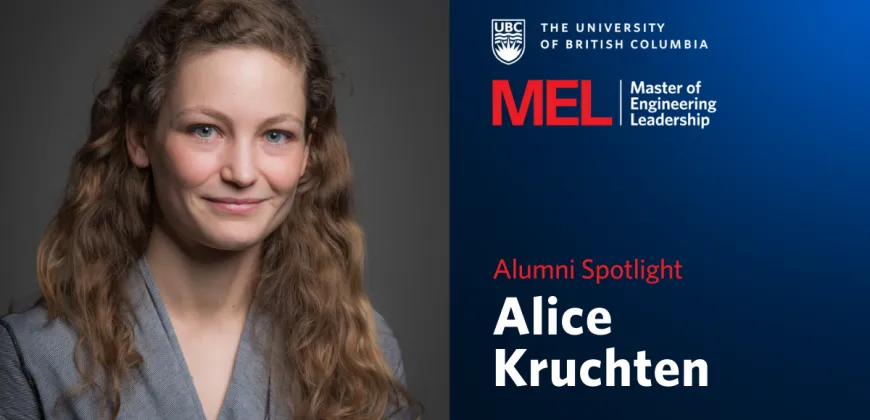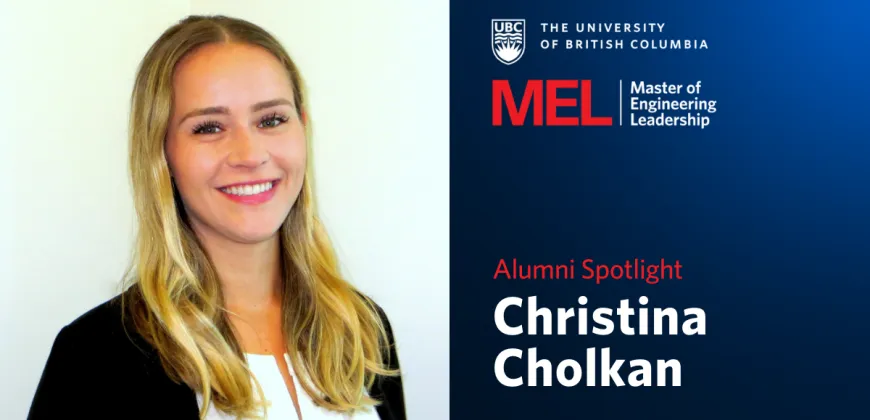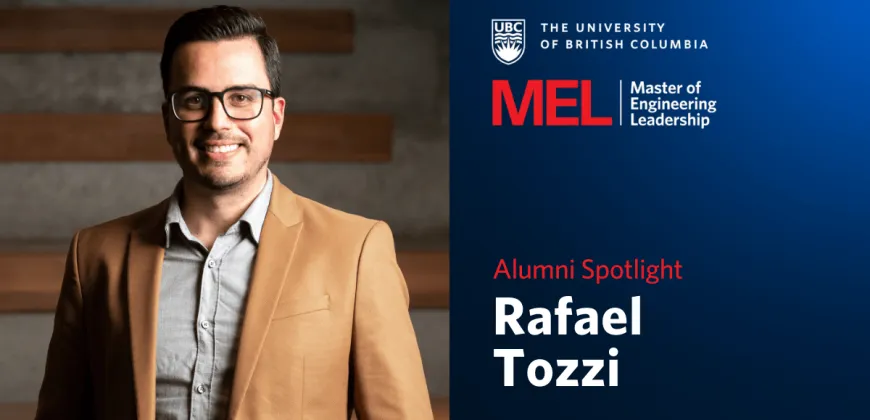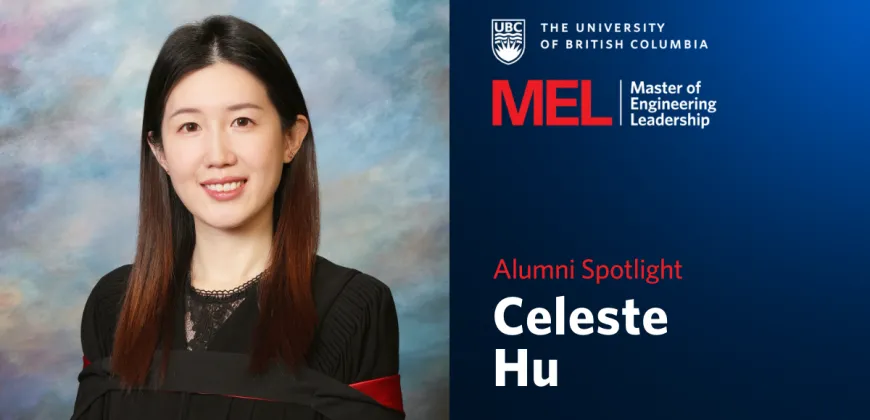Alumni Spotlight: Alice Kruchten
With five years of industry experience, Alice Kruchten was ready to enhance her technical and leadership skills and take on more complex projects in her environmental consulting work.

Alice Kruchten was at a point in her career where she was ready for new challenges. The environmental engineer had been working for a BC consulting engineering company since graduating from UBC in 2011.
“My application for my professional engineer designation was coming up, and I knew I was going to be taking on more responsibility at work, with bigger projects and more technical oversight,” she says. “A program that would improve my skills and only require one year away from work was very appealing.”
Learning from leaders
In her position at Keystone Environmental, Alice had worked on projects encompassing contaminated sites, remediation and water treatment. The Master of Engineering Leadership program in Integrated Water Management was a solid fit for her experience and interests, and she was attracted by the program’s flipped classroom format, which allows learning to happen from both professors and professional peers.
“The technical classes with professors who are leaders in their field and who have industry experience helped me sharpen my skill set,” she says.
Her fellow students also brought experience and insight. “My student colleagues had worked on a wide variety of projects in a variety of roles – some managed large-scale construction projects, some operated wastewater treatment systems. They came from both the public and private sectors, and had worked for small start-ups and international companies. We were able to learn from each other over the year and develop stronger networks.”
But it wasn’t just the technical courses that deepened her skills. The business leadership classes spurred her to think about business more strategically. As she says, “I’ve not been exposed to business strategy very much in my day-to-day work, which tends to be very project focused and technical.”
Touring a water treatment plant and attending conferences in the Lower Mainland and Toronto provided both networking opportunities and the ability to see firsthand how other Canadian jurisdictions are finding solutions to water-management issues.
Putting learning to work
Since returning to work, Alice has been applying her new skills in her consulting projects.
“I was glad to have gained experience in biological wastewater treatment, which will be increasingly relevant to my work in the future,” she says. “And I’ve already used many of the skills I learned in our data analytics and visualization course in my daily work.”
The program has also changed her perspective on the profession. “I now see engineering as a broader skill set,” she says. “I have a better understanding of how to communicate technical ideas and frame things more clearly. I also now understand the business aspects of our industry much better. The program has enabled me to understand how to link the technical and business components of what I do.”
A clearer direction
For Alice, consulting work is professionally rewarding and allows her to contribute to positive change. “I really like working in consulting,” she says. “I think it helps shape the direction an industry is going in. Consultants are able to make changes locally and see the effects of their decisions.”
Alice has graduated from the program with stronger skills, new perspectives, an expanded network and enhanced career opportunities. “I couldn’t have made these connections anywhere else,” she says. “And I’m really looking forward to keeping in touch with my classmates and seeing where we all go next.”


